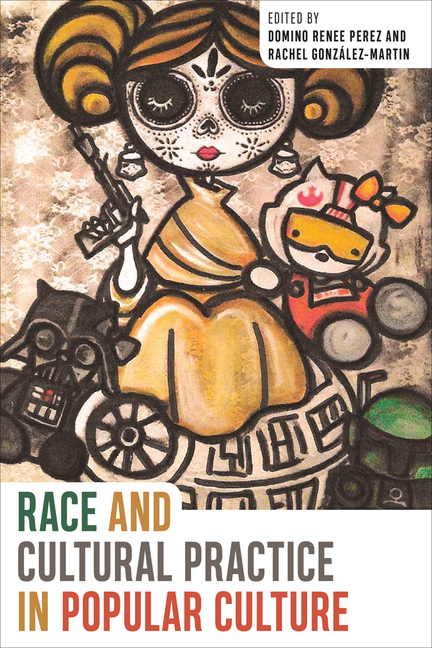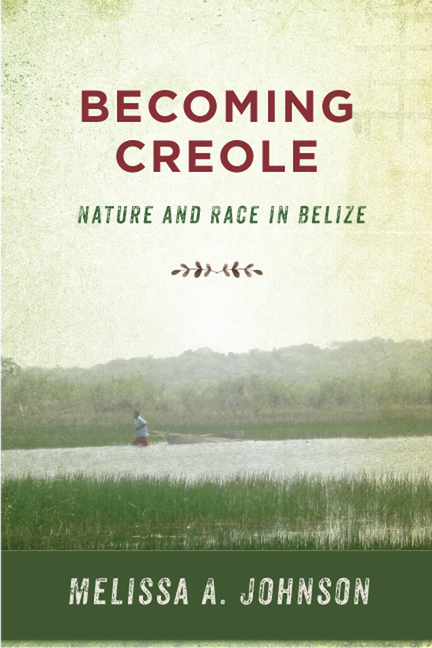Race and Cultural Practice in Popular CulturePosted in Anthologies, Books, Communications/Media Studies, Latino Studies, Media Archive, Native Americans/First Nation on 2018-11-09 03:39Z by Steven |
Race and Cultural Practice in Popular Culture
Rutgers University Press
2018-10-17
296 pages
6 x 9
Paperback ISBN: 978-1-9788-0130-1
Cloth ISBN: 978-1-9788-0131-8
PDF ISBN: 978-1-9788-0134-9
EPUB ISBN: 978-1-9788-0132-5
MobiPocket ISBN: 978-1-9788-0133-2
Edited by:
Domino Perez, Associate Professor of English
University of Texas, Austin
Rachel González-Martin, Assistant Professor of Mexican American and Latina/o Studies
University of Texas, Austin
Race and Cultural Practice in Popular Culture is an innovative work that freshly approaches the concept of race as a social factor made concrete in popular forms, such as film, television, and music. The essays collectively push past the reaffirmation of static conceptions of identity, authenticity, or conventional interpretations of stereotypes and bridge the intertextual gap between theories of community enactment and cultural representation. The book also draws together and melds otherwise isolated academic theories and methodologies in order to focus on race as an ideological reality and a process that continues to impact lives despite allegations that we live in a post-racial America. The collection is separated into three parts: Visualizing Race (Representational Media), Sounding Race (Soundscape), and Racialization in Place (Theory), each of which considers visual, audio, and geographic sites of racial representations respectively.
Table of Contents
- List of Illustrations
- “Assembling an Intersectional Pop Cultura Analytical Lens: A Foreword”
- Introduction: Re-imagining Critical Approaches to Folklore and Popular Culture / Domino Renee Perez and Rachel González-Martin
- Part I: Visualizing Race
- “A Thousand ‘Lines of Flight’: Collective Individuation and Racial Identity in Netflix’s Orange Is the New Black and Sense8” / Ruth Y. Hsu
- “Performing Cherokee Masculinity in The Doe Boy” / Channette Romero
- “Truth, Justice, and the Mexican Way: Lucha Libre, Film, and Nationalism in Mexico” / James Wilkey
- “Native American Irony: Survivance and the Subversion of Ethnography” / Gerald Vizenor
- Part II: Sounding Race
- “(Re)imagining Indigenous Popular Culture” / Mintzi Auanda Martínez-Rivera
- “My Tongue is Divided into Two” / Olivia Cadaval
- “Performing Nation Diva Style in Lila Downs and Astrid Hadad’s La Tequilera” / K. Angelique Dwyer
- “(Dis)identifying with Shakira’s ‘Global Body’: A Path Towards Rhythmic Affiliations Beyond the Dichotomous Nation/Diaspora” / Daniela Gutiérrez López
- “Voicing the Occult in Chicana/o Culture and Hybridity: Prayers and the Cholo-Goth Aesthetic” / José G. Anguiano
- Part III: Racialization in Place
- “Ugly Brown Bodies: Queering Desire in Machete” / Nicole Guidotti-Hernández
- “Bitch, how’d you make it this far?”: Strategic Enactments of White Femininity in The Walking Dead” / Jaime Guzmán and Raisa Alvarado Uchima
- “Bridge and Tunnel: Transcultural Border Crossings in The Bridge and Sicario” / Marcel Brousseau
- “Red Land, White Power, Blue Sky: Settler Colonialism and Indigeneity in Breaking Bad” / James H. Cox
- Acknowledgments
- Notes on Contributors
- Index


